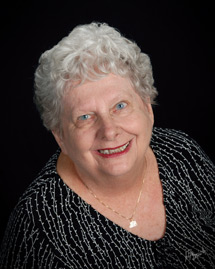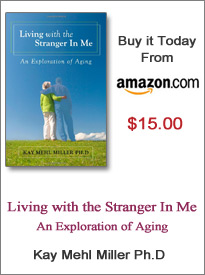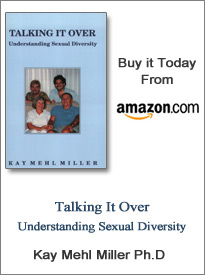What’s so different about being old and sexually diverse and being old and heterosexual?
On a basic level, nothing. We all experience the same kind of joys and the same kinds of suffering old age brings, but to those who are heterosexual comes a confidence in aging to which seniors who are sexually diverse are not easily privy.
The secrecy that many gay, lesbian, bisexual, and transgendered people have had to maintain most of their lives follows them into their senior years and has a profound effect on everything a person does and especially the level of care available.
A newly released study, Caring and Aging , the first of its kind to be funded by the National Institute for Health and the National Institute for Aging, questioned 2,560 GLBT persons, aged 50 to 95, across the nation about issues of aging. Eighty percent of those studied were between 50 and 79, most of them easily qualifying as Baby Boomers.
Among the findings: Nearly one half of these LGBT older adults have a disability. One third experience depression. Almost two thirds have been victimized three or more times. Thirteen percent have been denied or received inferior health care, while more than 20% do not tell their primary health care provider their sexual or gender identity
While these statistics are stark, imagine, if you aren’t an LGBT person, what it must feel like to have to think twice before you tell your doctor who you are. If you are depressed and are not heterosexual, who do you trust to treat that depression? Although our society is better informed than when these seniors were growing up, how does one who has been victimized so many times before begin to trust that he or she will be treated with respect and fairness?
Now stretch your imagination to include housing, senior centers, golf and bridge clubs or any other activity many seniors enjoy and think about whether LGBT persons are not only welcomed, but are nurtured as friends and companions. What about children, grandchildren and extended family? For many older senior LGBT persons, there are few or no relatives to take care of them in their later years. Partners or friends may be there, but these relationships have limitations, one being that they, too, may be old and in need of care as well.
At least two million people are LGBT seniors. That number is conservatively extrapolated from the number of seniors willing to share their sexual identity. As attitudes change and the population grows, the number is expected to double by 2030.
If you think that LGBT persons can be entirely free and open in today’s society, think again. Our nation just recently rescinded the “don’t ask, don’t tell” required for service in the military. Between 1997 and 2007, nearly 10,000 service members were fired for being gay. Policies of this sort and the betrayals they foster are not easily forgotten. In the study 26 % of the participants had served in the military, among them 41% identifying as transgender.
The study results showed that older LGBT adult participants are still reluctant to be fully out. Best friends are the ones most trusted with this information (92%). Children came in second (85%), followed by sisters (81%), brothers (80%), mother (66%), father (54%), grandparents (27%). In the larger communities in which they live, work, or are retired these seniors were out to current or previous supervisors, (69%), a neighbor (66%), in their faith communities (73%), and to their physician, (79%).
The good news in the study was a finding that LGBT older adults are resilient in living their lives and building their communities—90% said they felt good about belonging to their communities. The use of activities like meditation to promote wellness was reported by 91% of the participants, while 81% said they exercise regularly, and 38% attend spiritual or religious services.
Increasingly there are improved services for LGBT older adults. The best known national group concerned with this population is SAGE, Services and Advocacy for Gay, Lesbian, Bisexual and Transgender Elders.





Very well written and sensitive. Good information about folks, many who we know and love.
Great looking blog, Kathryn!
Thanks for tackling this touchy subject.
Thanks for sharing this interesting research in your well-written post. As I’ll be an aging LGBT member by 2030, I’m heartened to know that stat will double due to our changing society opening doors for younger generations to come out earlier. Even with political backlashes and the snail’s pace at which societal norms change, I am hopeful that things like the Defense of Marriage act gets rescinded sooner rather than later. Although I’m ever grateful I didn’t grow up in an era where I could be easily institutionalized for my sexuality or gender orientation, I continue to be amazed by some of the presumptions still made at a personal and community level–including health care at Planned Parenthood of all places! I hadn’t before thought much about how early attitudes and experiences for today’s seniors can keep them isolated and from accessing good healthcare and other resources due to fear from prior traumas, etc. Thanks for enlightening me.